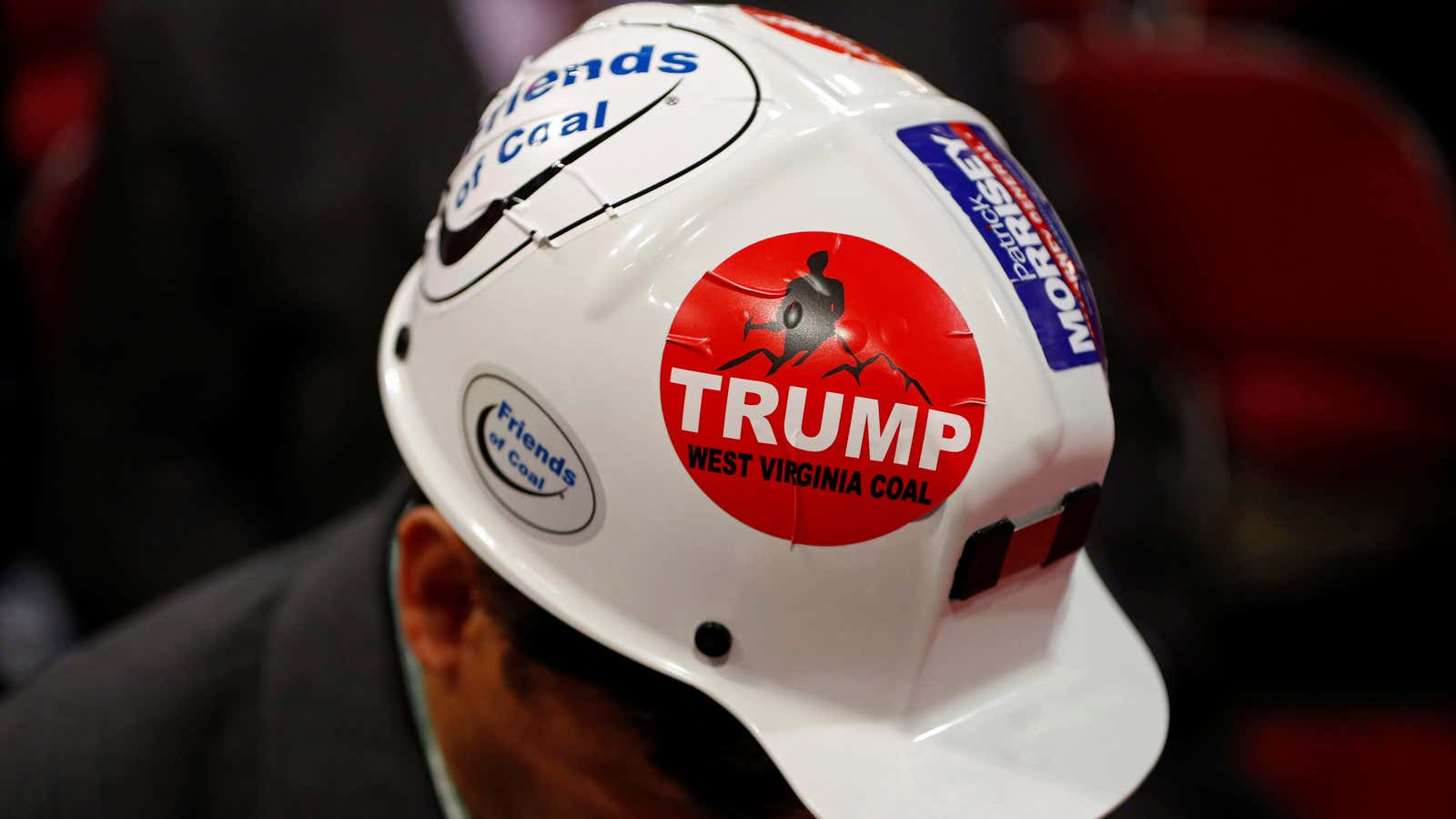Like many others, proponents of clean energy were thrown into a state of shock after the US election results. During the campaign, now President-elect Trump dismissed climate change as a Chinese hoax and threatened an abrupt shift in US energy policy.
Despite this shaken political climate, there are many reasons to remain optimistic about the prospects for clean energy in the United States. Specifically, renewable energy is broadly popular, makes sense financially, and is largely state-regulated.
Outside of Washington, there is overwhelming support for renewable energy. Gallup found that 79% of Americans would like to see more emphasis on domestic solar energy production and they are increasingly voting with their roofs: more than one million US homes now have solar panels installed. Red states like South Dakota and Idaho are on the forefront of renewable energy adoption alongside blue states like California and Massachusetts. Clean energy is not a partisan issue—it’s a technology that can provide solid middle class jobs and energy savings for all.
Renewables energy’s popularity is similarly broad among corporations. Over 80 major companies have committed to the goal of 100% renewable energy including Ikea, Apple, Google, Bank of America, Coca Cola, Nike, P&G, Walmart, and many more. Whole Foods achieved the feat back in 2006. Increasingly corporations are breaking from traditional models and producing and buying renewable energy directly to meet their goals. For example, earlier this year three of Nevada’s largest casinos—MGM Resorts, Wynn, and the Las Vegas Sands—announced plans to leave the state’s utility to procure more renewable energy on the open market.
A key driver to country-wide adoption of renewable energy by both consumers and corporations is economics. Regardless of one’s views of the environment, renewable energy, particularly when combined with storage, is increasingly the right financial decision. The cost of producing solar energy, for instance, has fallen rapidly and is now 70% less expensive than it was a decade ago. Further, renewable energy provides more price stability than conventional fossil fuels, which may be further exacerbated if we enter an era of trade wars.
Finally, state and local governments play a much larger role in the management of the energy industry than the federal government. State utility commissions lead utility regulation and are guided by state legislatures and governors in setting goals, incentives, and policy guidelines. State-level ballot initiatives have further demonstrated broad consumer support for renewable policies. This week Florida voters defeated a utility-supported measure to restrict solar in the state and Nevada voted overwhelmingly to end NV Energy’s legal monopoly and create a path for more clean, cost-effective energy in the state.
Renewable energy’s popularity, low cost, and state-led regulation provide a good deal of insulation from the tumultuous national politics, but there’s also reason to believe that the clean energy industry is well-aligned with the objectives of a Trump administration. If president-elect Trump is truly committed to growing American jobs and building American industry, the clean energy industry is a crucial component of that economic engine. The solar industry alone employs 140,000 more workers than the coal mining industry and is growing rapidly.
Further, Trump has vocally supported increasing investment in US infrastructure. The infrastructure of the 21st century is not just highways and bridges. It’s wind and solar plants, charging networks for electric vehicles and energy storage. Modernizing and expanding ports to handle offshore wind installations will support dockworkers, shipbuilders and a more diverse coastal economy. Upgrading our electric grid will make transporting clean energy easier, as well as hardening it against terrorist attack. Support for the clean energy industry translates directly into the growth for the US economy, middle class manufacturing jobs, and enhanced national security.
More broadly, the United States must maintain its leadership role in the growing global industry of clean energy. Both the public and private sectors have the opportunity and responsibility to bring the technology and know-how of our industry to the rest of the world, particularly to the developing world where it would be most beneficial and help expand the middle class as the population grows. Americans should continue to support an industry that can grow jobs here and in regions around the world to prevent the social and environmental problems of the future as we nurture a strong and substantial 21st century workforce.
